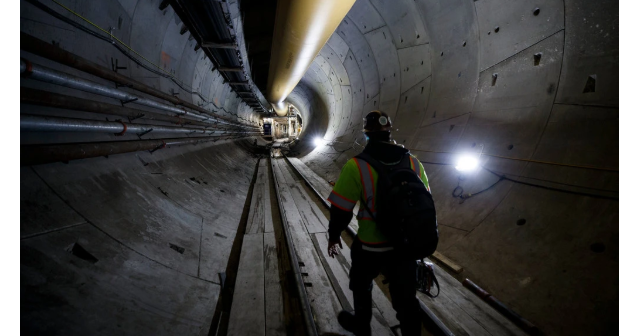The Environmental Protection Agency has made it easier for cities to keep dumping raw sewage into rivers by letting them delay or otherwise change federally imposed fixes to their sewer systems, according to interviews with local officials, water utilities and their lobbyists.
Cities have long complained about the cost of meeting federal requirements to upgrade aging sewer systems, many of which release untreated waste directly into waterways during heavy rains — a problem that climate change worsens as rainstorms intensify. These complaints have gained new traction with the Trump administration, which has been more willing to renegotiate the agreements that dictate how, and how quickly, cities must overhaul their sewers.
The actions are the latest example of the Trump administration’s efforts to roll back nearly 95 environmental rules that it has said are too costly for industry or taxpayers. That list grew on Thursday, when the administration stripped clean-water protections from wetlands, streams and other waterways.
“When you walk into the current E.P.A., as a local government, you’re not treated as evil,” said Paul Calamita, a lawyer who represents cities seeking to change their agreements. “Which we’d gotten, quite frankly, from prior administrations.”
Cities that say they are renegotiating their sewage agreements with the agency include Cleveland; Seattle; Kansas City, Mo.; South Bend, Ind.; and Chattanooga, Tenn. Other cities, including Pittsburgh, Louisville and St. Louis, have already concluded talks for new terms.
The scale of many of the upgrades required by prior administrations is enormous.
For instance, Washington, D.C., which is considering whether to renegotiate its own deal with the E.P.A., is currently drilling the second of three mammoth tunnels designed for one thing: to hold 190 million gallons of untreated sewage and storm water. The tunnels will be used when the city’s aging sewer system is overwhelmed, so that untreated wastewater doesn’t flow into the Anacostia River, as it now does 15 to 20 times a year.
While officials in many of these cities praise the Trump administration’s flexibility, environmentalists say that the changes threaten safety by allowing pathogens and chemicals to keep flowing into rivers and along beaches and to back up into streets or basements during storms.
“This trend is yet another example of the administration’s deregulatory agenda threatening our natural resources and public health,” said Becky Hammer, deputy director for federal water policy at the Natural Resources Defense Council. “If cities face genuine cost concerns, there are other methods to maintain affordability while still keeping sewage out of our lakes and rivers. Read more:




